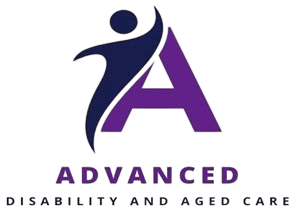Speech therapy or speech pathology fosters allied health services under the NDIS (National Disability Insurance Scheme) umbrella. It helps manage communication and swallowing challenges due to developmental delays, an underlying intellectual disability, or due to a neurological disorder or injury. Speech therapy assists people in becoming more independent, interacting more socially, and improving their quality of life. Within NDIS, speech therapy is recognized and funded as a targeted and evidence-based intervention customized to each participant’s goals.
Speech Therapy in the NDIS Framework
Australians with a permanent and significant disability are provided with support for their individual, social, and functional goals by the NDIS. Speech therapy is covered under the scheme for funding, provided it is considered reasonable and necessary for the participant to achieve their goals. This can include aid to clearer speech, language development, supporting literacy skills, stuttering management, and even more complex eating and drinking challenges.
A registered speech pathologist with Speech Pathology Australia (SPA) employs evidence-based strategies to provide her services. She evaluates a participant’s capabilities and challenges and plans for interventions that can be implemented on individual or group bases. This strategy often includes collaboration with the participant’s family, carers, teachers and other relevant health professionals to provide comprehensive support.
Advantages of Speech Therapy for NDIS Participants
Speech Therapy has a wide range of important benefits for NDIS participants. It helps individuals with developmental disorders, such as autism, to acquire and use functional communication. Individuals recovering from a brain injury, or individuals with conditions such as cerebral palsy or Down syndrome, can benefit from therapy in the areas of speech production, language comprehension, and safe swallowing.
Therapy also improves communication skills, both verbal and non-verbal, use of gestures, sign language, or AAC (augmented and alternative communication) devices. Enhanced communication improves the participant’s ability to express their needs and reduces frustration, increases independence, and improves participation in education and in work as well as community activities.
Speech therapy deals with social communication as well, helping people know how to have discussions, understand tone and body language, and change their communication style based on the situation. In some cases, therapy also includes helping patients read and write, which helps them attain a higher level of education and better job prospects.
Customized Methods and Strategies
Speech therapy within the NDIS framework is personalized to the patient’s needs. A speech pathologist, for instance, conducts a formal assessment and makes some observations to understand and categorize the participant’s challenges and goals. Then based on the goals and observations made, the speech pathologist devises a plan and combines different strategies to suit the participant’s needs.
For instance, articulation therapy is designed to enhance the example of speech sounds for effective communication, while language intervention activities focus on developing vocabulary, grammar, and sentence formation. Also included in the language intervention are lessons on interpreting faces and holding a conversation on a single topic, which are all social skills necessary for conversation. For those with minimal speech ability, AAC systems that include everything from picture boards to speech-generating devices are utilized and incorporated into daily activities for more effective communication.
Other vital therapy areas include swallowing therapy, which can address muscle weakness related to the lips, mouth, and chin, as well as modifications of food and fluid consistency and protective strategies for mealtime. These actions not only enhance wellbeing, but also make eating more enjoyable, and improve the ability to socialize.
Why Speech Therapy is Funded in the NDIS
Speech therapy services can be accessed through numerous NDIS funding categories including Capacity building supports like Improved Daily Living, Improved Communication, Health and Wellbeing, and Therapy Services. To obtain funding, most participants require some form of diagnostic documentation from the clinicians explaining the link between speech therapy and the patient’s NDIS plan goals and detailing how it would provide measurable outcomes.
Participants have the option to use NDIS-registered speech therapy providers. Alternatively, self-managed participants can use non-registered providers. The choice is frequently determined by the budget and the patient’s location. Therapy is continually monitored and reviewed to ensure it is effective and aligned with the therapy goals, and the participant’s changing needs.
Effects on Inclusion and Participation
In addition to speech and language difficulties, speech therapy supports participation and inclusion within communities. Enhanced communication skills empowers participants to engage more actively within communities, build relationships with others, and participate in group activities. These skills are also vital in the foundational stages of schooling and in making friendships. For adults, these skills also aid in working and engaging with communities.
Group-based speech therapy sessions can foster peer engagement and collective learning. These environments allow participants to gain confidence and reduce anxiety related to communication by practicing skills in real-world social contexts.
Challenges and Considerations
Like in other programs, speech therapy in the context of the NDIS has its challenges. Access to a speech pathologist is restricted in some rural and remote areas, resulting in longer wait times or the need to use telehealth. While telehealth is effective for many, it can be a challenge for participants who need more active support or have sensory and attention challenges.
Funding is another issue to consider. Families and participants need to ensure that the NDIS budget covers regular sessions, as speech therapy requires sustained engagement over time. Funding speech therapy sessions often requires a bearing high quality tracking of progress to justify the sustained financing.
Conclusion
As part of the NDIS framework, speech therapy remains an integral pillar of support. It offers personalized, evidence-based strategies to manage a variety of communication and swallowing difficulties. It assists participants in achieving both individual and community goals while improving functional communication, encouraging social integration, and promoting independence. For many individuals, effective expression and communication creates life-changing opportunities such as access to education, employment, and active societal participation. Under the NDIS, therapy not only fosters individual growth, it also helps in the development of more inclusive and communicative communities in Australia.
